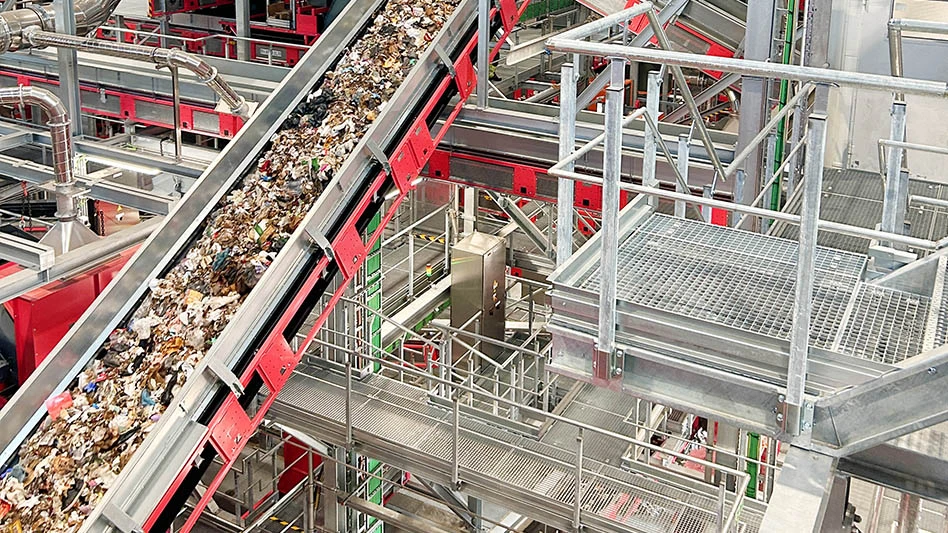
skiminok | stock.adobe.com
A research team led by a professor at Duke University has authored a study identifying the production and disposal of lithium-ion batteries as an "increasing source of a troubling subclass of per- and polyfluoroalkyl substances (PFAS) contamination.”
The U.S. Environmental Protection Agency (EPA) and regulators in other nations are examining the potential effects of the presence of PFAS in water and soil. Those assessments are evaluating potential cancer-causing and noncancer-related effects, including potential effects on the endocrine, hepatic, urinary, immune, developmental and reproductive systems.
According to Duke, “Since the discovery of GenX in the Cape Fear River in 2017, Lee Ferguson, professor of civil and environmental engineering at Duke University, has been a leading figure in sussing out other PFAS compounds in water supplies across North Carolina and the nation.”
In the study published this month by Nature Communications, Ferguson and colleagues delve into the role of lithium-ion batteries as an increasing source of what they call a troubling subclass of PFAS contamination known as bisperfluoroalkyl sulfonimides (bis-FASIs).
“These chemicals show environmental persistence and ecotoxicity comparable to older notorious compounds like PFOA and GenX,” according to the study.
“We’ve discovered that an understudied type of PFAS or ‘forever chemicals’ called bis-FASIs, such as those used in lithium-ion battery production, are an emerging issue not only for communities near manufacturing sites but also anywhere these batteries are thrown away,” Ferguson says. “In North Carolina specifically, we’ve found these chemicals seeping from landfills into leachates, which highlights the need for more studies to assess the sources and spreading of these compounds here and across the country.”
The researchers sampled air, water, snow, soil and sediment near manufacturing plants in Minnesota, Kentucky, Belgium and France.
“The bis-FASI concentrations in these samples were commonly at parts per billion levels,” the report says, noting the EPA recently set the maximum level for similar perfluorooctanoic acid (PFOA) and perfluorooctanicsulfonic acid (PFOS) compounds a thousand times lower at four parts per trillion.
Analysis of several municipal landfill leachates in the southeastern U.S. also revealed bis-FASI concentrations approaching one part per billion, indicating that these compounds can enter the environment through disposal of products such as lithium-ion batteries.
Toxicity testing demonstrated that concentrations of bis-FAS similar to those found at the sampling sites can change behavior and fundamental energy metabolic processes of aquatic organisms, the researchers add. Bis-FASI toxicity has not yet been studied in humans.
“Our results reveal a dilemma associated with manufacturing, disposal and recycling” of the batteries, says Jennifer Guelfo, associate professor of environmental engineering at Texas Tech University and an author of the study.
Treatability testing showed that bis-FASIs did not break down during oxidation, which has also been observed for other PFAS such as PFOS, which has helped earn them the nickname “forever chemicals.”
However, data showed that concentrations of bis-FASIs in water could be reduced using granular activated carbon and ion exchange, methods the researchers say already are used to remove PFAS from drinking water.
“These results illustrate that treatment approaches designed for PFOA and PFOS can also remove bis-FASIs,” Ferguson says. “Use of these approaches is likely to increase as treatment facilities are upgraded to comply with newly enacted EPA Maximum Contaminant Levels for PFAS.”
The text of the full study can be found here.
Latest from Waste Today
- US Senate backs reduced cuts to EPA
- ELV Select Equipment, Reworld aid NYPD in secure firearm disposal
- Waste Connections announces Q2 results
- Returnity and Cosmoprof to address reusable bag waste
- SWANA releases report on aging WTE facilities
- New economic assessment reveals cost benefits of California’s SB 54
- Premier Truck Sales & Rental opens new facility
- TeknTrash Robotics, Sharp Group partner on humanoid robot pilot





